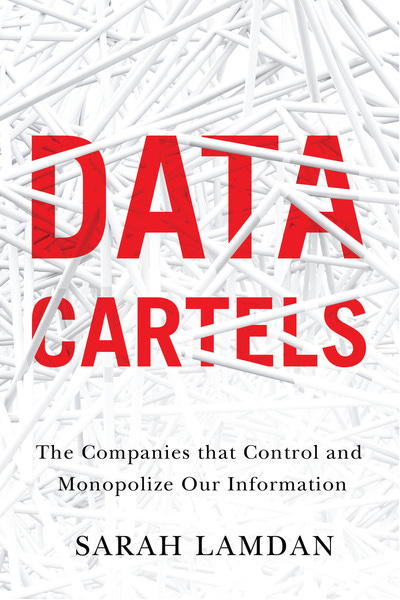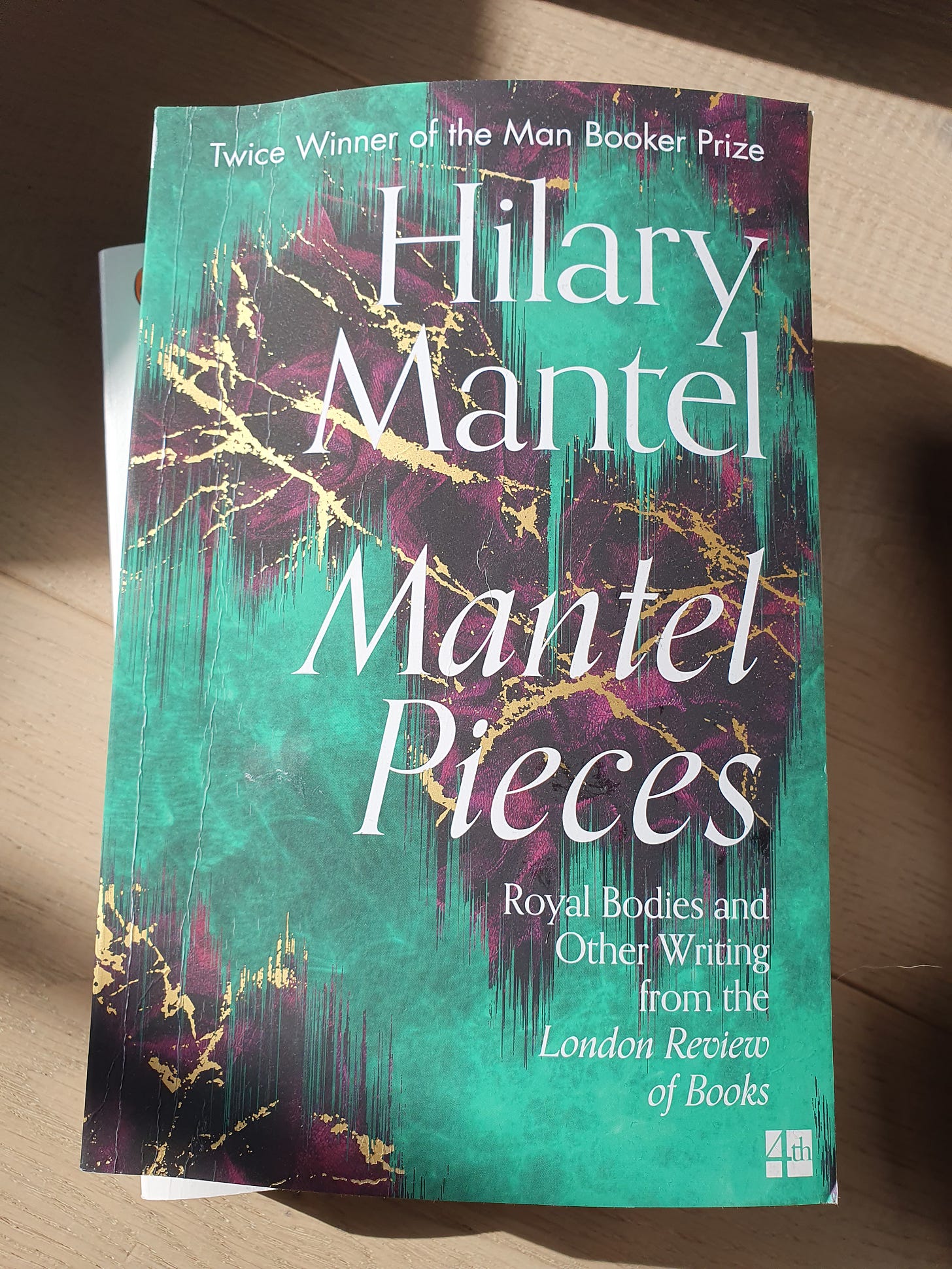I've reviewed Sarah Lamdan's book Data Cartels for the TLS, it's available here (it was in last week’s issue of the paper). It's only a very short piece, about 450 words or so, but it was an interesting thing to do - in fact, writing a review that short was really quite hard, there was no space to waste. I ended up writing a first draft of about 900 words and then cutting it in half - before then getting some great help from the editor to shape it up. It was a learning experience.
I'm a subscriber to the paper and read it every week, so I jumped at the chance to write for them. It's nice to see the review in the issue. Seeing it out there has given a bit of a boost to my writing. I bought a spare copy at Edinburgh Waverley train station, it was nice to think of it being picked up by people to pass time at places like train stations.
Lamdan's Data Cartels is a meticulous book covering data access in academic, legal, financial and news sectors. It deals very directly with the protective ownership of data by some large companies - and the data monoliths covered in the book are not the ones that a reader might expect. Obviously there is only so much I could say in the brief TLS review. There were a couple of things that I didn't mention in that review, because of space and because I wanted to focus on the question of markets in my review of the book. First, I noticed that taking ownership as a focus was a good way to explore power from a slightly different angle. In particular it brings out the way that the control of data operates in practice (and in generating and managing value too). Lamdan repeatedly returns to the paywall as one key mechanism for controlling data access.
I thought the central concept of the ‘data cartel’ actually lost some of the subtlety of Lamdan's analysis. It left me wondered if there was a better concept for capturing what was being described. In the accounts the connotations of the label of cartel didn't seem to quite fit the type of monopolisation at work. Still, it remains a useful concept for promoting the type of control that was being accounted for.
The other thing that I ended up questioning was the separation of data and information that the book relied upon. The discussion of ownership in Lamdan's book - which defines the difference between data and information in the first chapter - seemed to expose the blurriness of the line between the two. It still becomes hard in places to separate data from information in the descriptions provided by Lamdan. Rather than being a problem, it seemed instead that the line can't really be drawn between the two where services are provided that attempt to extract value from data. Data and information are in process with one another.
In the review I briefly question the ability of markets to solve the problems highlighted by Lamdan. I pose that question in the review, and I know the answer is actually very tricky. Markets are not renowned for facilitating fairness though, so I think it’s probably a fair question to ask, especially if they are proposed as being part of the solution. Alongside renewed competition, Lamdan also talks of the repurposing of old regulatory frameworks from broadcast media, such as radio.
Social Media lecturer posts here at York
We are looking for a Lecturer in the field of social media here at York. The information is here. If you know anyone who might be interested, please do share this with them.
Hilary Mantel
Whilst reading Hilary Mantel’s amazing Mantel Pieces collection, I’ve also been listening to as many talks and interviews as I can find. My favourite so far is this interview she did with Michael Rosen. The Mantel Pieces book has a really nice introduction that I wish was longer. In a few pages it tells the story of how the pieces were written and how she came to be a writer and reviewer.
Washington review of books
I recently discovered The Washington Review of Books on Substack. Published twice a week, it provides links to interesting readings and other content. Then there are supplements on film and arts too. Below is a link to a recent issue.
The In Writing podcast is back
The In Writing podcast, hosted by the writer Hattie Crisell, is now back for another series of interviews with writers about writing.
The podcast runs alongside the In Writing newsletter - below is a recent issue about books and memory.







